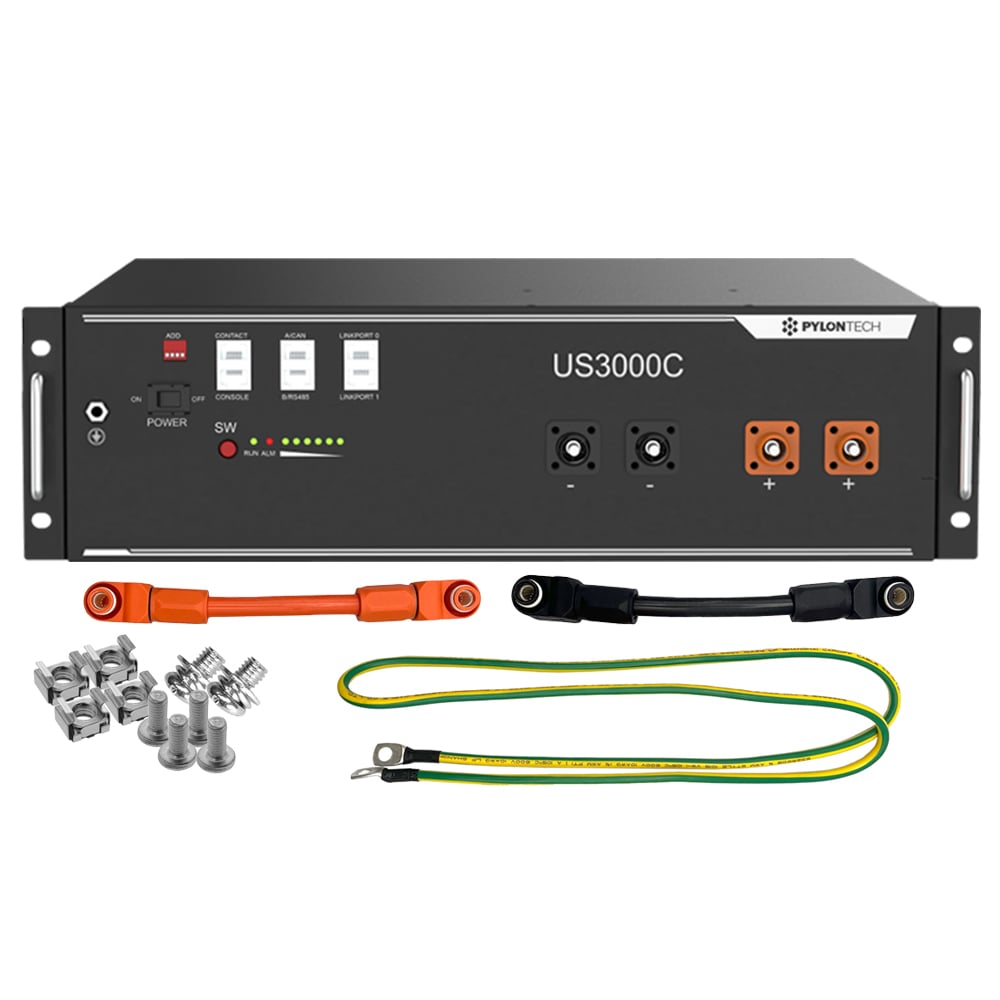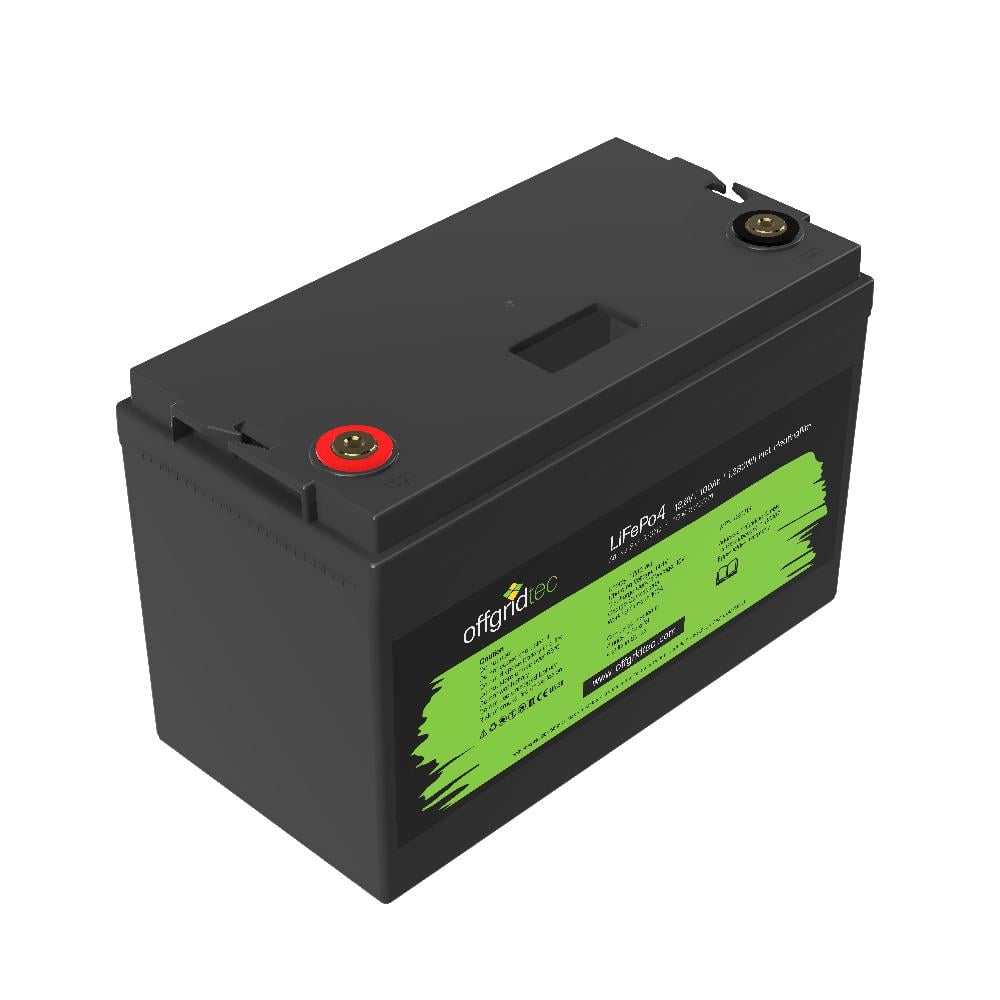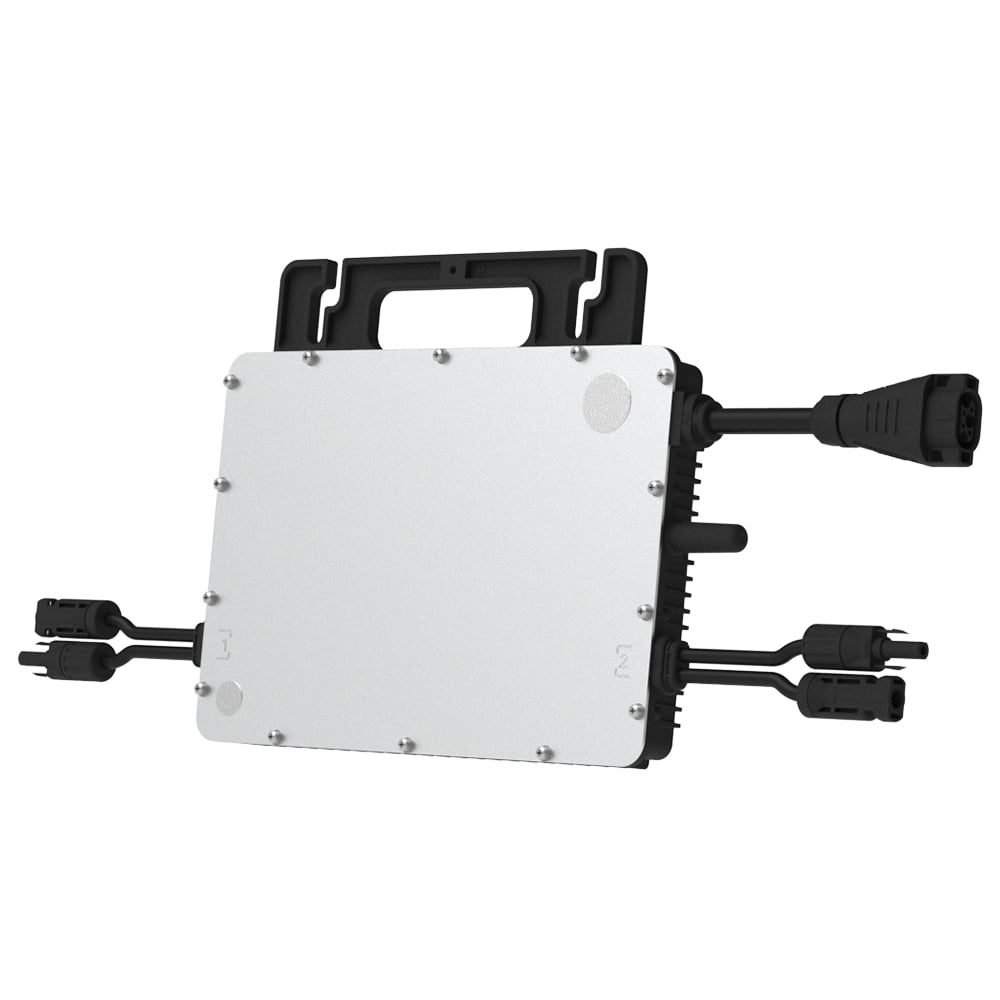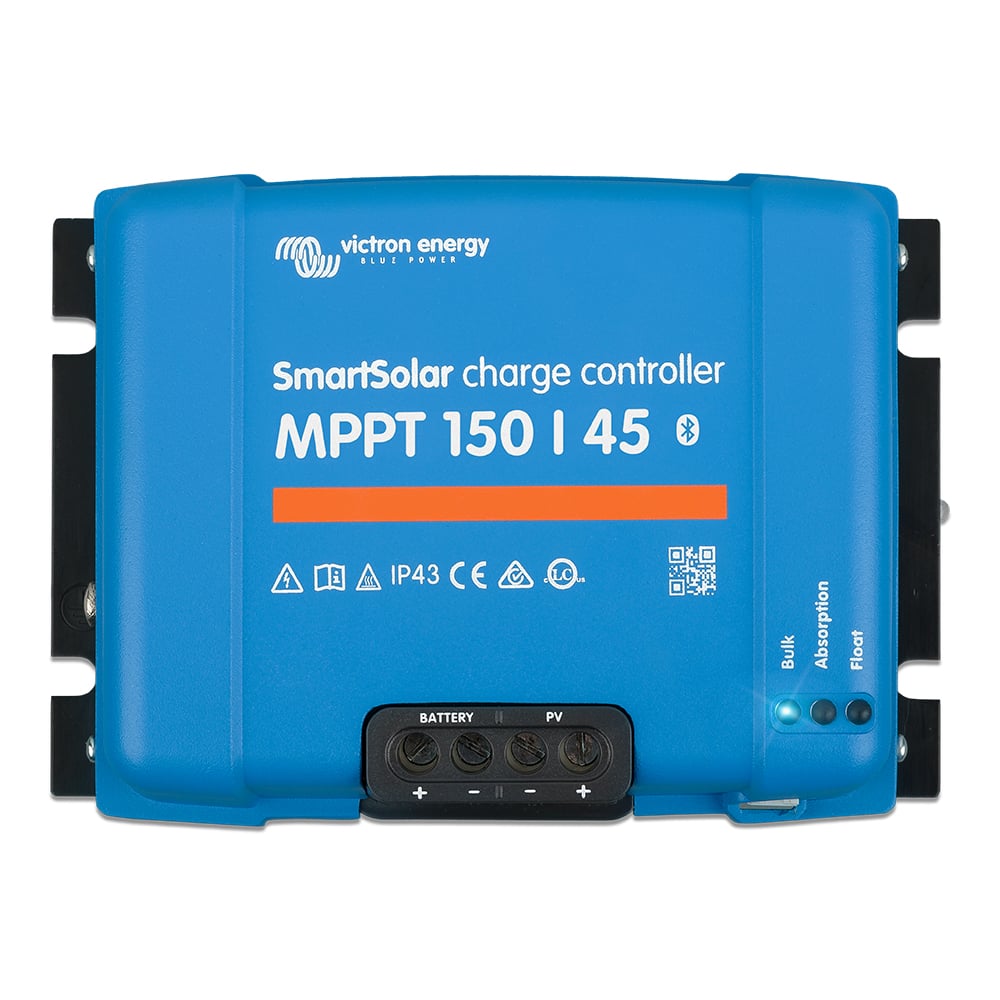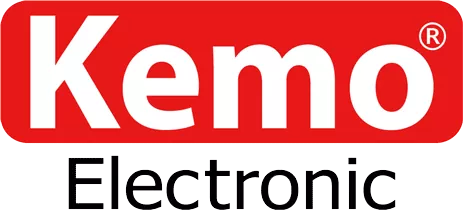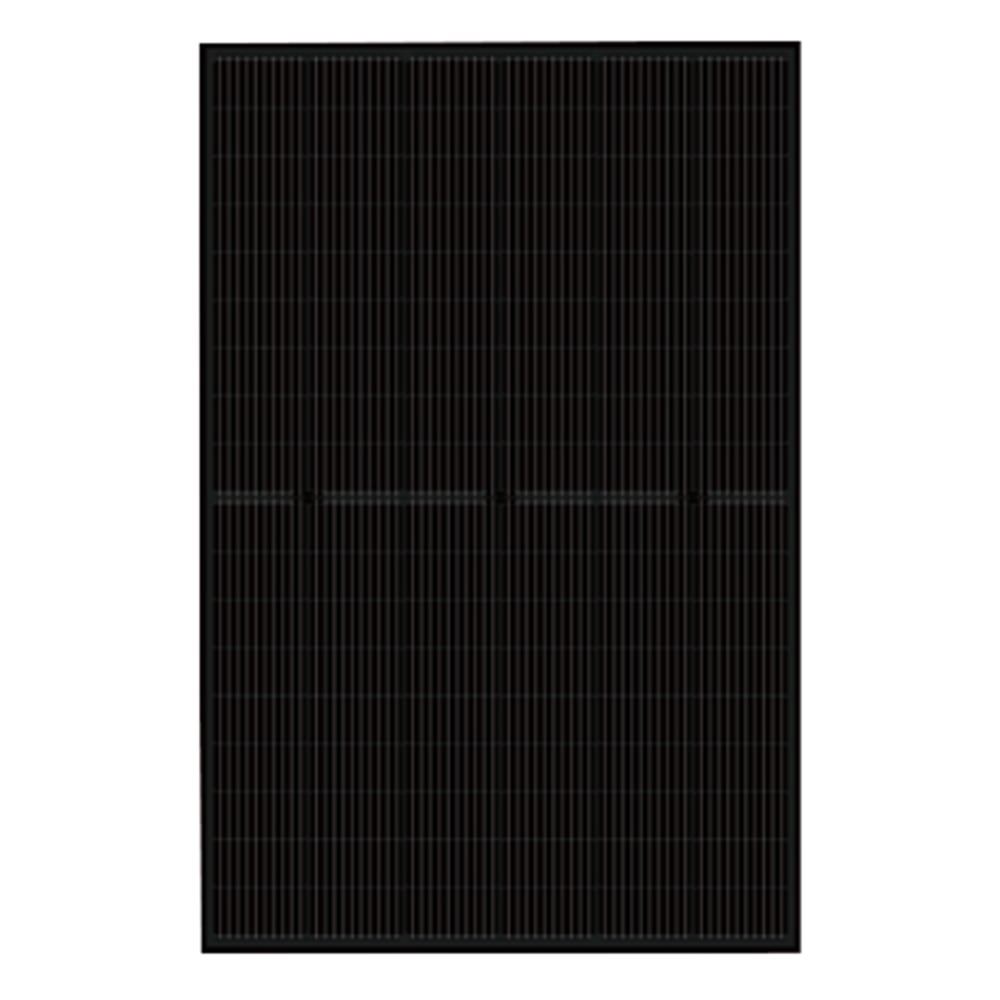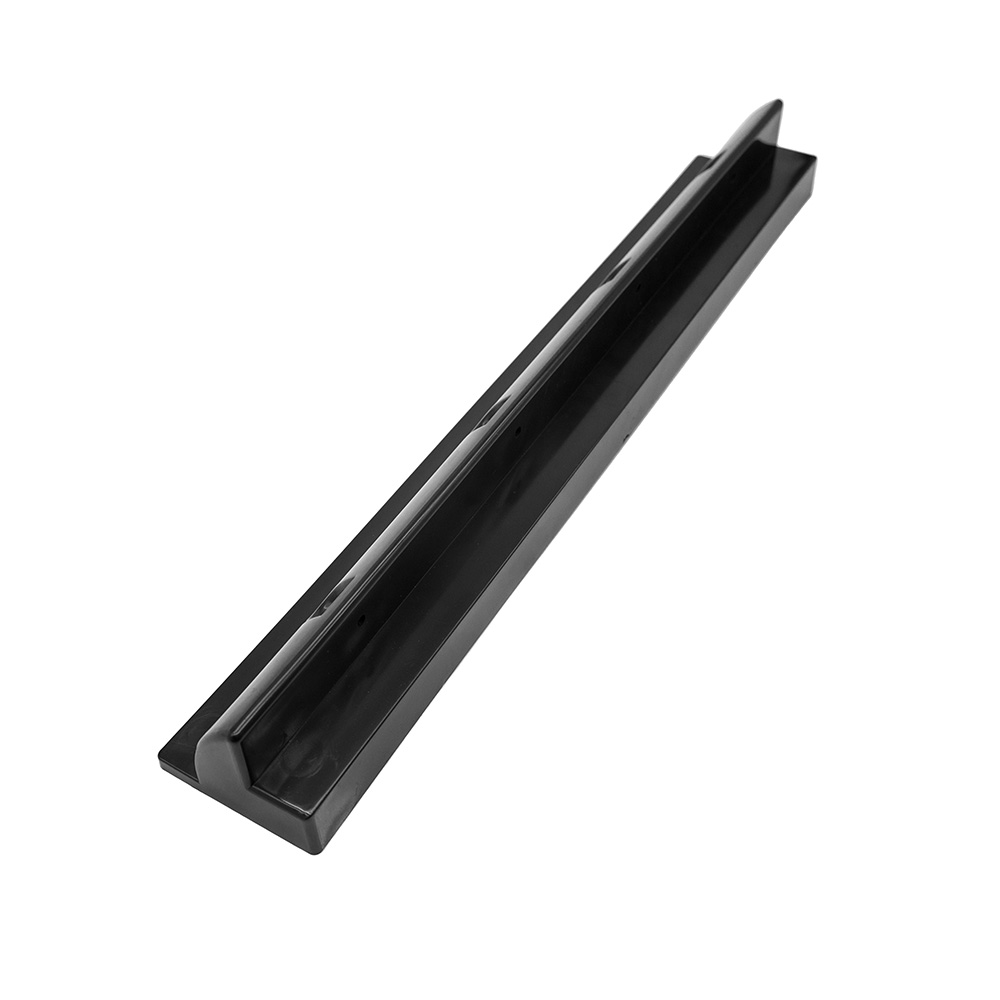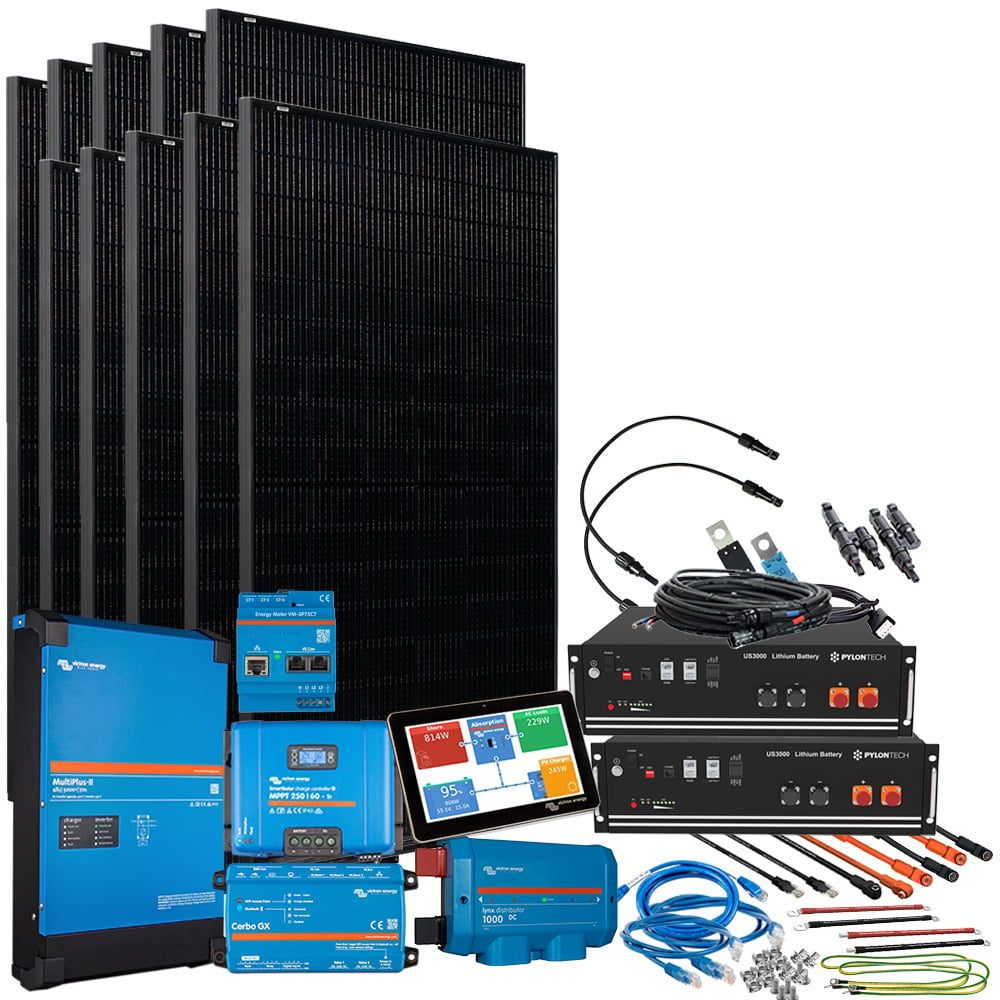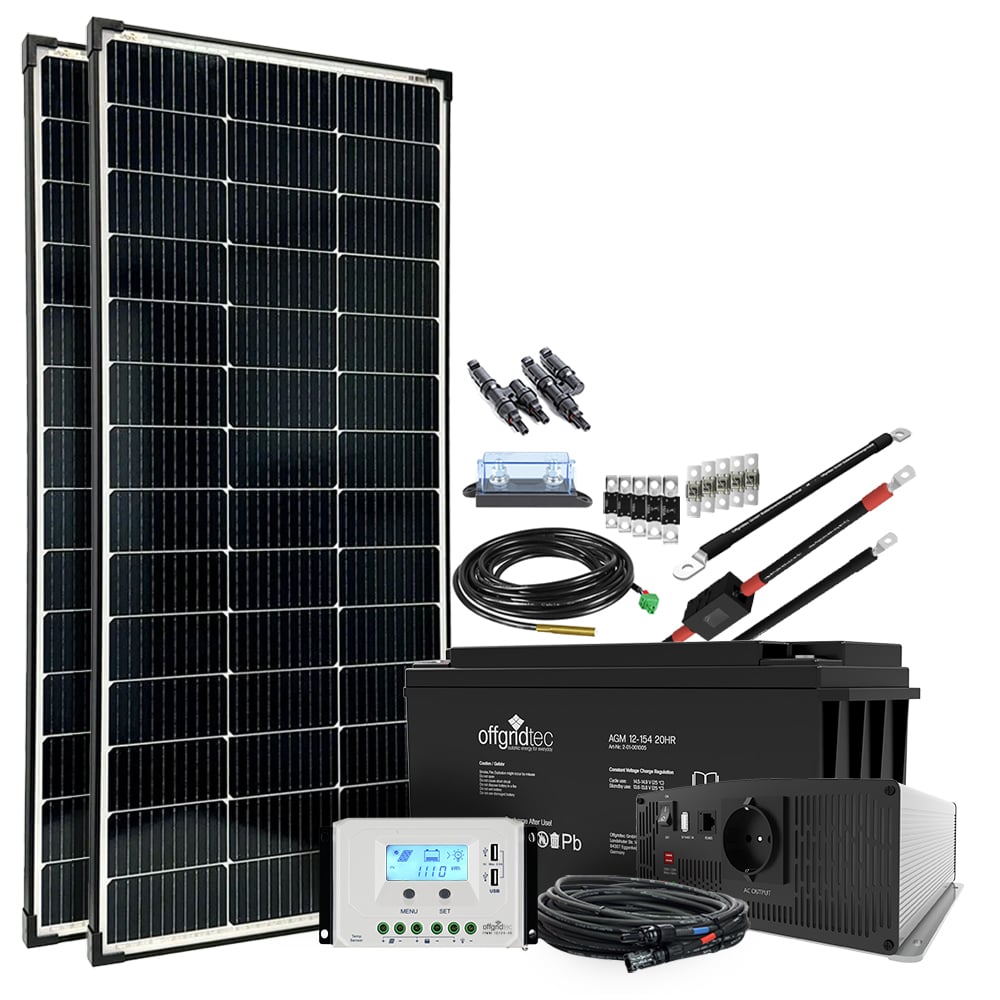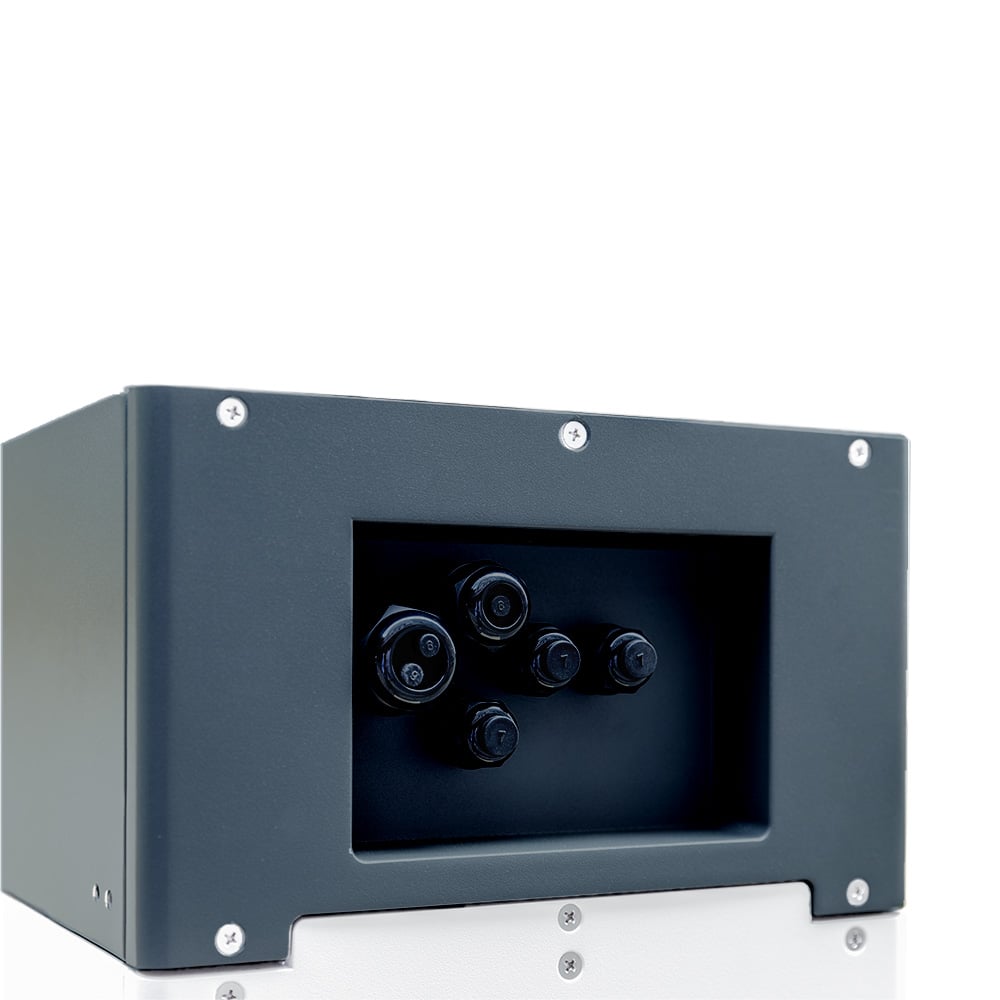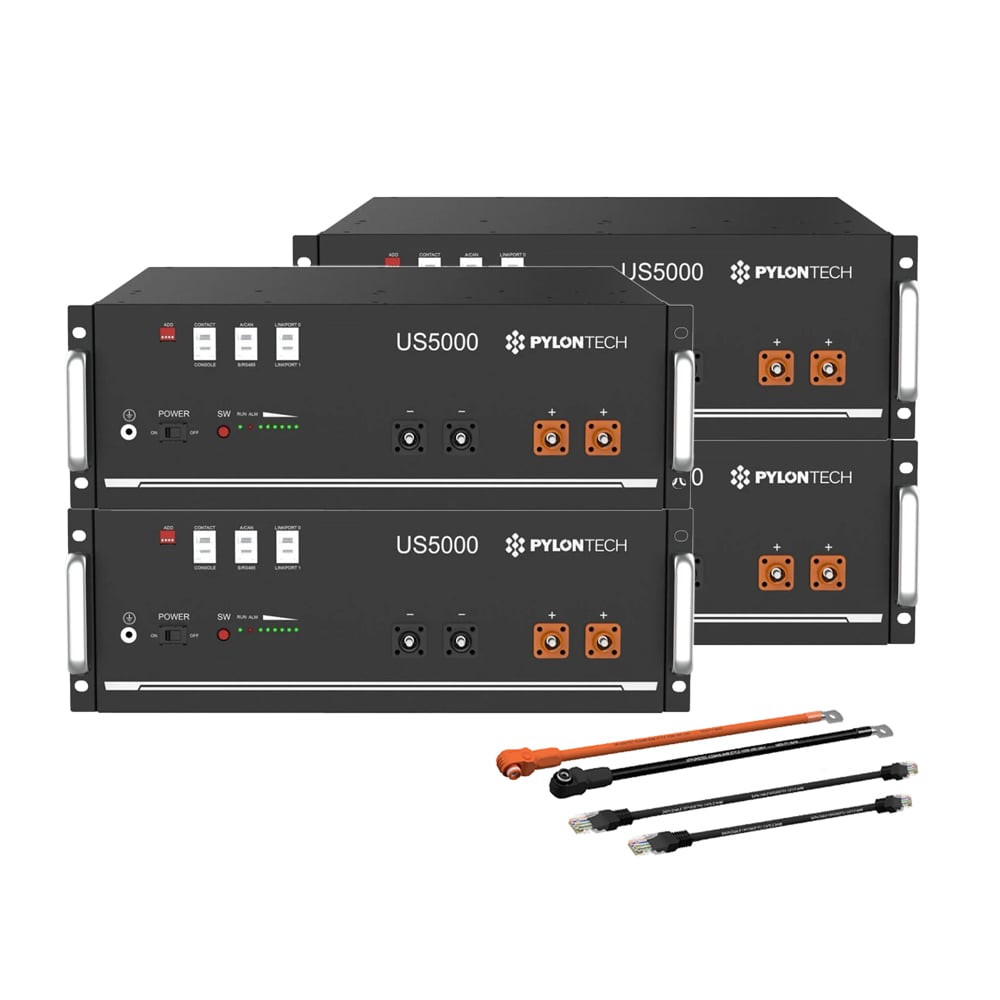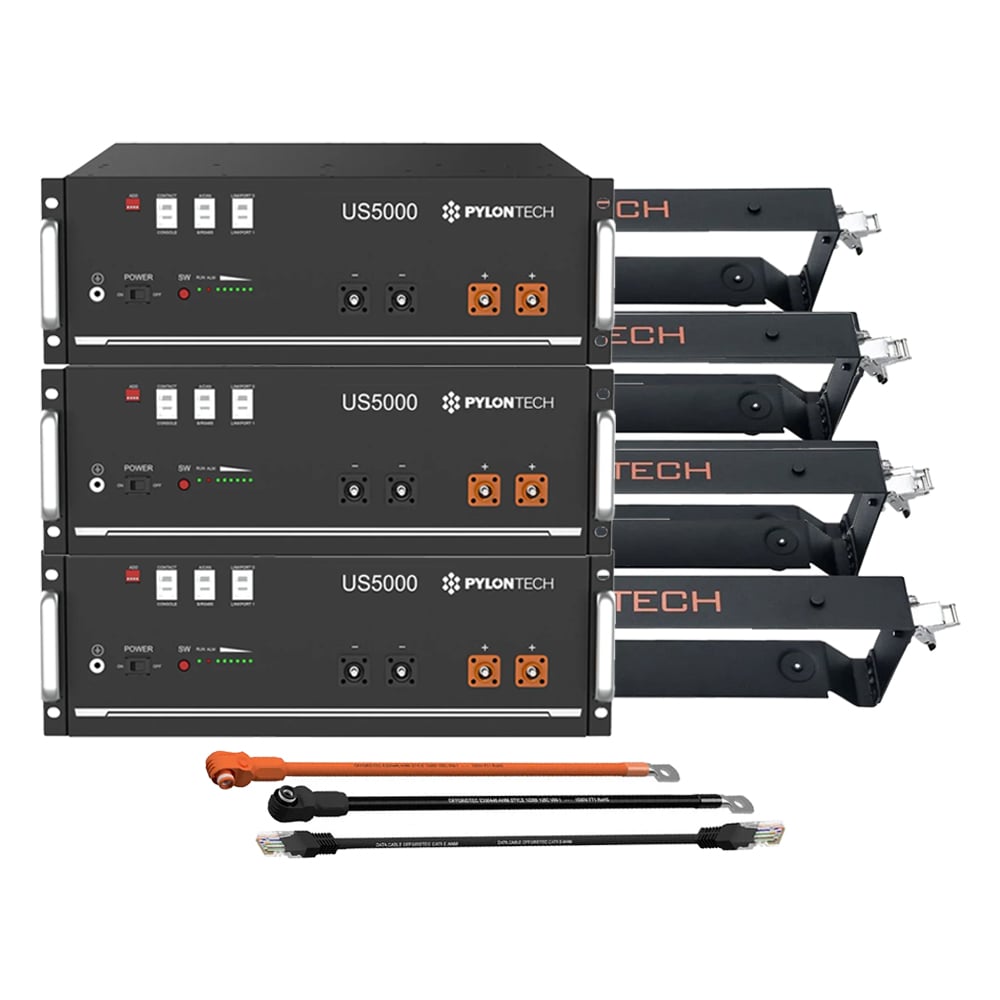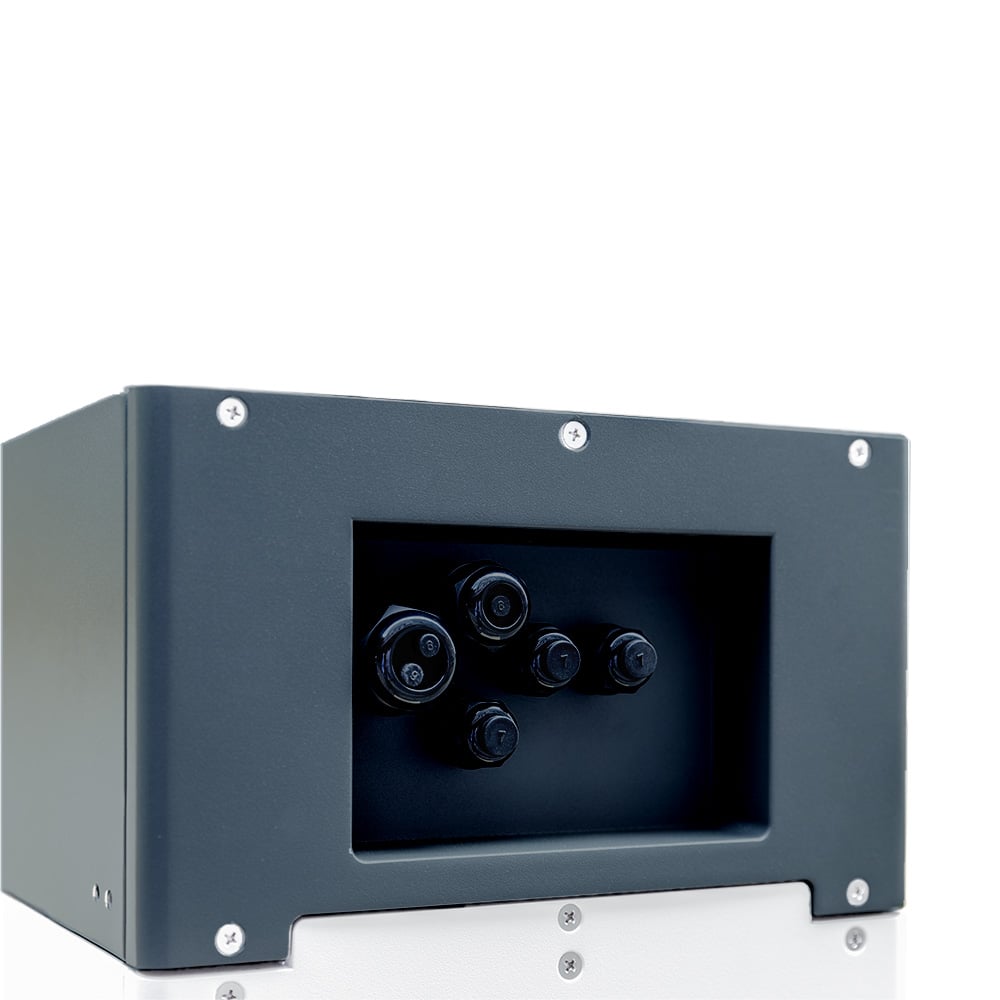PV storage test | solar storage | photovoltaics | electricity storage | best | comparison
PV storage test 2024 - Comparison of the best photovoltaic solar storage systems
More and more households are producing their own electricity with the help of solar systems. To be able to use the self-generated electricity even when the sun is not shining, electricity storage systems are the ideal solution. More and more manufacturers are entering the market, meaning that the range on offer is constantly increasing. But is such a photovoltaic power storage system worth it and what should you look out for when buying one? We at Offgridtec have the answers to these questions and present our top 9 manufacturers of PV power storage systems.
Is it worth having an electricity storage system for your solar power system?
With well over 100,000 photovoltaic storage systems actively serving in Germany, collecting solar energy and covering a significant portion of the electricity needs of households and businesses, the integration of a solar power storage system can increase self-consumption to up to 75%, compared to only 25 to 40% without storage.
Therefore, many households are installing a matching storage system alongside a new solar installation. Such an energy storage solution allows surplus solar energy to be stored for future use, significantly expanding the utility of a photovoltaic system. However, alongside the benefits, which we will now discuss, setting up and acquiring a power storage system entails considerable costs. From an economic standpoint, this only makes sense under certain conditions for long-term storage of generated electricity.
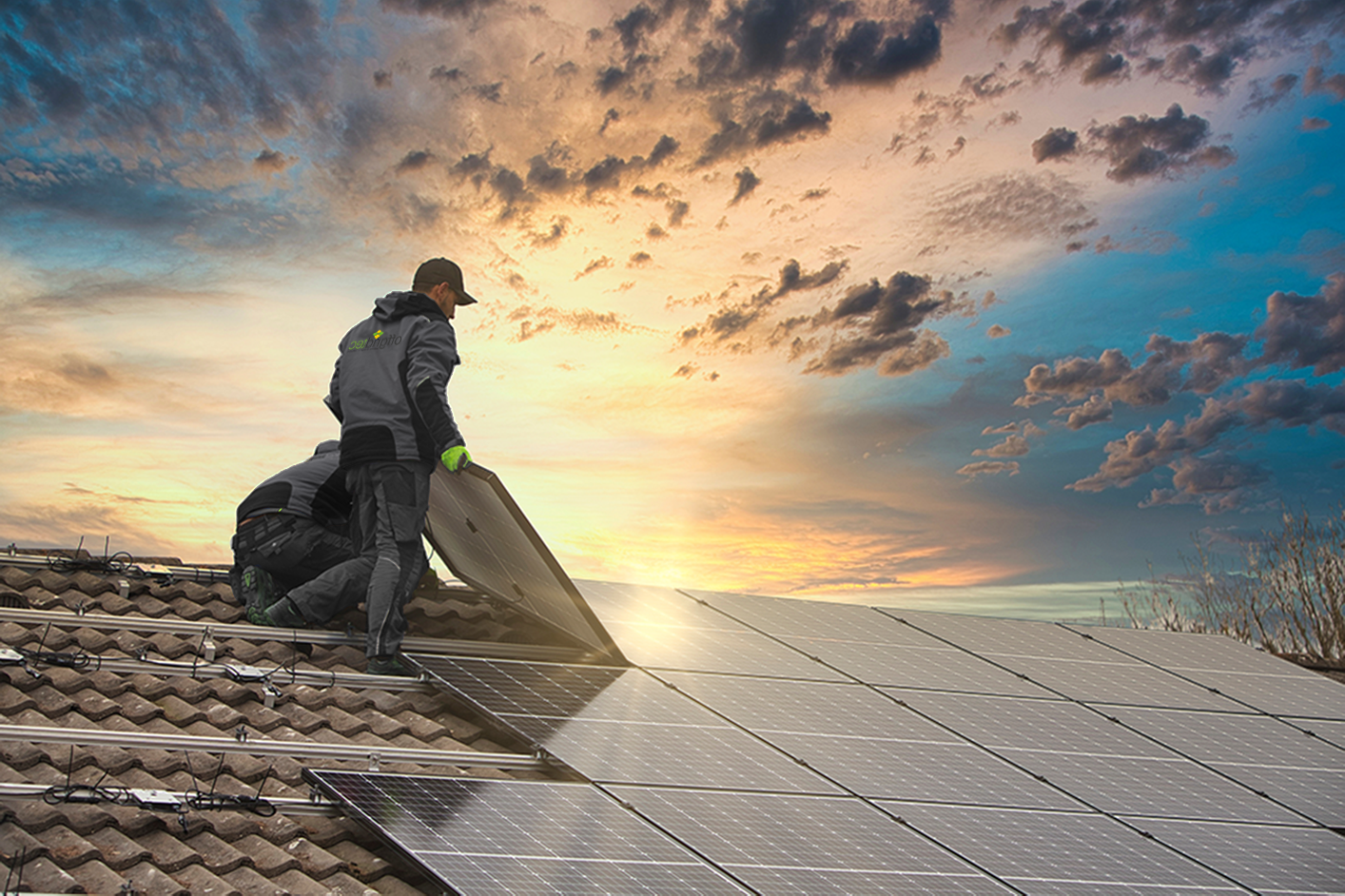
Logically, a solar installation does not generate electricity throughout the entire day. After all, the sun does not shine continuously, and on cloudy days, solar energy production is lower compared to clear days. During midday, when sunlight is strongest, the photovoltaic system generates the most electricity. However, before sunrise and after sunset, the modules cannot produce energy.
Especially in the evening, when the average household has the highest electricity demand, reliance on expensive electricity from external providers may be necessary without the option to access a power storage system, even though a solar installation is installed on the roof.
On the other hand, during a typical workday, one often finds it challenging to fully utilize the available solar energy generated by the photovoltaic system at midday, when it produces the most kilowatt-hours.
The solution to this problem is provided by photovoltaic storage systems. The energy converted into electrical power by the solar panels can be stored in a high-capacity battery and used at a later time, for example, in the evening. This way, you have the ability to utilize the solar power generated by your system regardless of the time of day or weather conditions.
This has several advantages:
- It reduces your expenses for external electricity providers and protects you from potential increases in electricity prices.
- It represents an extremely environmentally friendly method of meeting your own energy needs through self-consumption.
- A power storage system still allows the excess electricity to be fed back into the grid, so you can continue to benefit from feed-in tariffs.
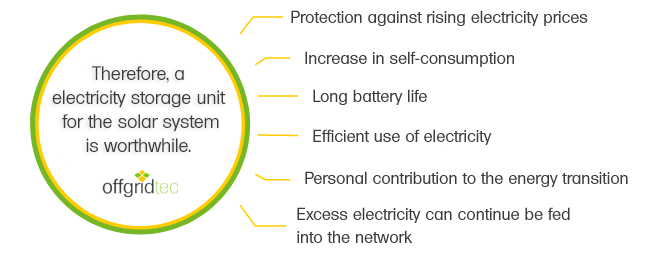
An additional benefit: With a power storage system installed in your home, you are optimally prepared for power outages. Major household consumers, such as a freezer, can continue to be supplied with energy, provided that the necessary precautions have been taken.
Of course, as mentioned earlier, there are some costs involved when storing the electricity from a solar system. Firstly, there's the purchase or installation of the power storage system to consider. Although the prices of PV storage systems have decreased significantly in recent years, you should still expect costs in the low four digits. Prices can vary depending on the manufacturer, size, or storage capacity in kilowatt-hours (kWh).
Looking ahead to the coming years is also encouraging. Thanks to the advancing mass production of storage cells, the costs of lithium-ion batteries are decreasing, leading to further reductions in the cost of power storage. However, it remains to be seen what impact the increasing demand for batteries for electric vehicles will have on this trend.
So, is a power storage system worth it? The answer: Yes.
With a power storage system connected to your photovoltaic system, you can significantly increase the self-consumption of the generated electricity. With proper maintenance of your solar system, you can also protect yourself against rising electricity prices, especially as batteries are continuously improving in terms of lifespan and efficiency. Additionally, you can store and use more green energy, making a personal contribution to the energy transition. All of these factors make the use of a PV system storage worthwhile.
What you should consider when buying a solar storage tank
When purchasing a solar storage system, there are several things to consider. It's advantageous to compare different energy storage systems to choose the most suitable one. You can best compare solar storage systems based on these key metrics:
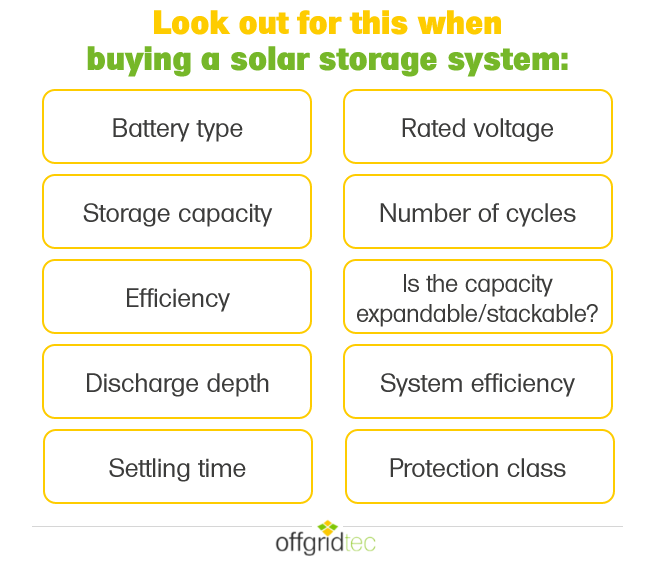
One of the most important metrics, if not the most important, is storage capacity. It describes the amount of kilowatt-hours of electricity that the storage system can absorb and store. The storage capacity of household systems typically ranges from 4 to 16 kWh. The actual need for storage capacity depends mainly on the size of your photovoltaic system and your personal consumption behavior.
However, please note: The stated storage capacity does not represent the actual usable capacity. Typically, the usable capacity is about 5% lower than the stated storage capacity.
The lifespan of PV storage systems is limited and depends significantly on the intensity of their usage. The crucial measure here is the number of cycles a storage system undergoes during its lifetime. A cycle involves the storage system being charged, stored, and discharged once, utilizing its capacity fully. For modern storage systems, the typical cycle count usually ranges from 5,000 to 10,000, resulting in a storage lifespan of approximately 15 to 20 years.
Another important metric is efficiency. It indicates the percentage of initial solar energy that can be reused after storage. Typically, the efficiency of the battery, i.e., how efficiently individual lithium-ion cells operate, is around 98%. However, in practice, the efficiency is slightly lower due to losses during conversion in the inverter or operation of the energy manager.
Tip: When choosing your PV storage system, also consider whether the capacity of your desired model can be expanded later. If so, you can respond much more flexibly to future changes in your electricity consumption. Additionally, it can be a wise decision to choose a storage system that has a built-in emergency power function.
In addition, you should compare PV storage systems based on these criteria:
- Depth of Discharge: This metric indicates the proportion of stored electricity that is actually usable. A greater depth of discharge allows for more efficient utilization of the battery capacity.
- System Efficiency: System efficiency evaluates the efficiency of energy conversion in a device. A higher system efficiency means less energy is lost during storage and conversion of electricity.
- Response Time: This metric indicates how quickly the solar storage system can deliver the required energy. Why is this important? If a device can promptly meet its energy needs from the solar storage system, less energy will be drawn from the public grid, resulting in cost savings.
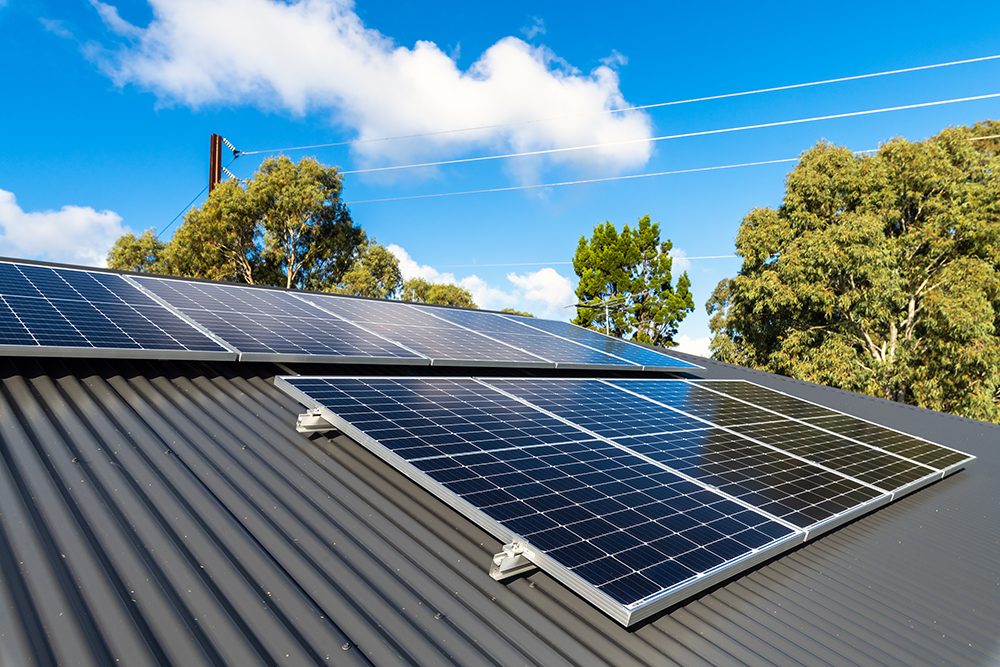
The best PV storage systems in our comparison: Top 9 manufacturers
- Pylontech
- Offgridtec
- Growatt
- BYD
- EcoFlow
- Bluetti
- Zendure
- Huawei
- Victron Energy
Our winner: Pylontech
Our test winner is Pylontech, a manufacturer of energy storage systems that has become a worldwide leader in battery storage systems since its founding in 2009. Pylontech's storage modules are known for their proven quality and are particularly distinguished by their long lifespan of over 10 years and inherently safe lithium technology. These modules are not only compatible with a variety of inverters from reputable manufacturers but also offer excellent value for money.
Due to this versatility, they are often used as a premium alternative to conventional lead-acid batteries. Despite their compact design, they are remarkably lightweight yet deliver impressive charging and discharging performance. Another highlight is their user-friendly design, which allows for straightforward installation. Pylontech therefore not only guarantee a reliable and efficient energy solution, but also the highest level of user-friendliness.
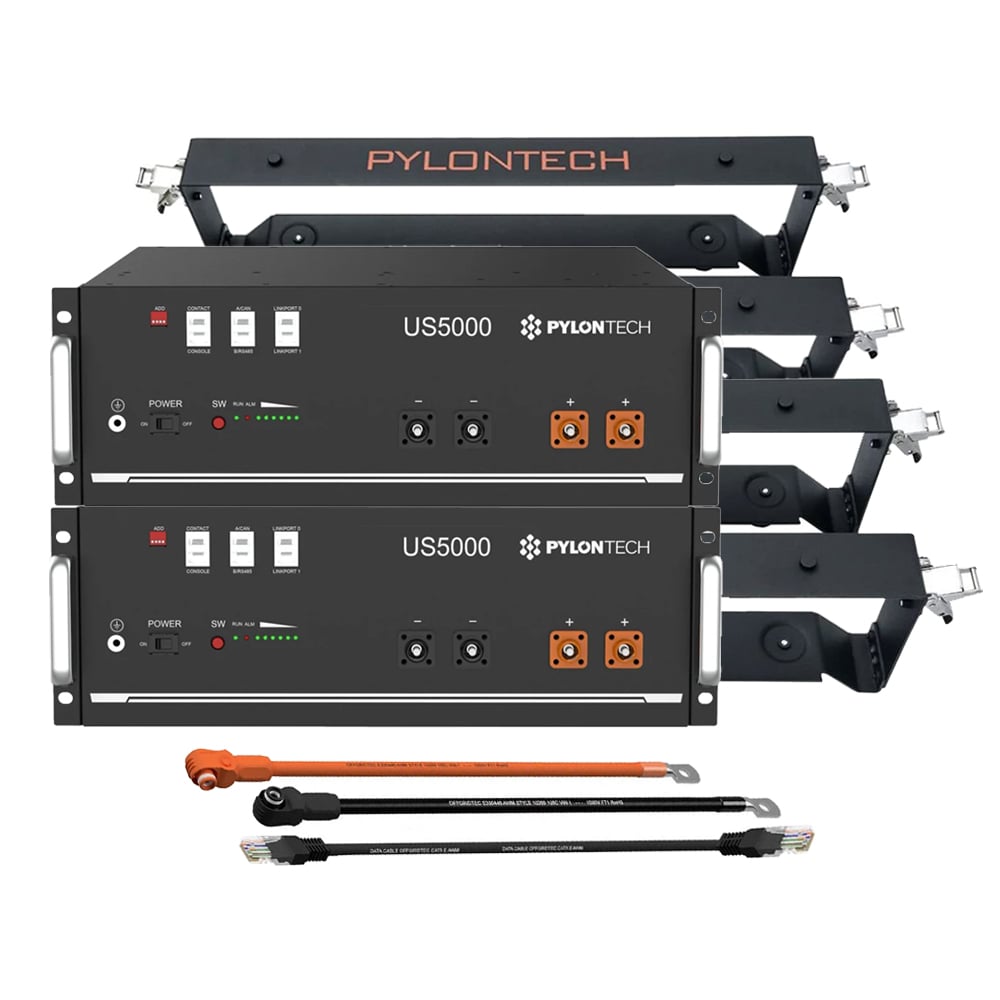
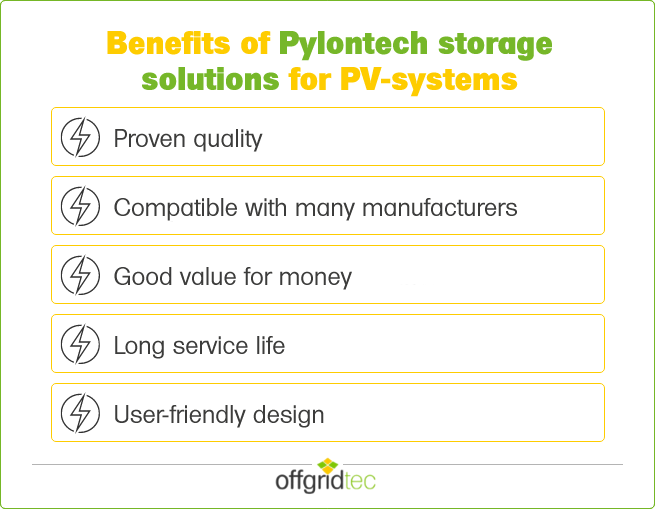
2nd Place: Offgridtec
Offgridtec has secured the second spot, being pioneers in the field of autonomous power supply as the first German company to develop solar solutions based on the Plug & Play principle. In the production of their PV storage systems, Offgridtec relies on both in-house manufacturing and collaboration with industry-leading partners.
Thanks to modern manufacturing techniques and the use of high-quality components, the storage modules guarantee a high level of quality that has proven itself. Furthermore, all solar storage systems are manufactured according to current standards to ensure the highest safety and performance standards.
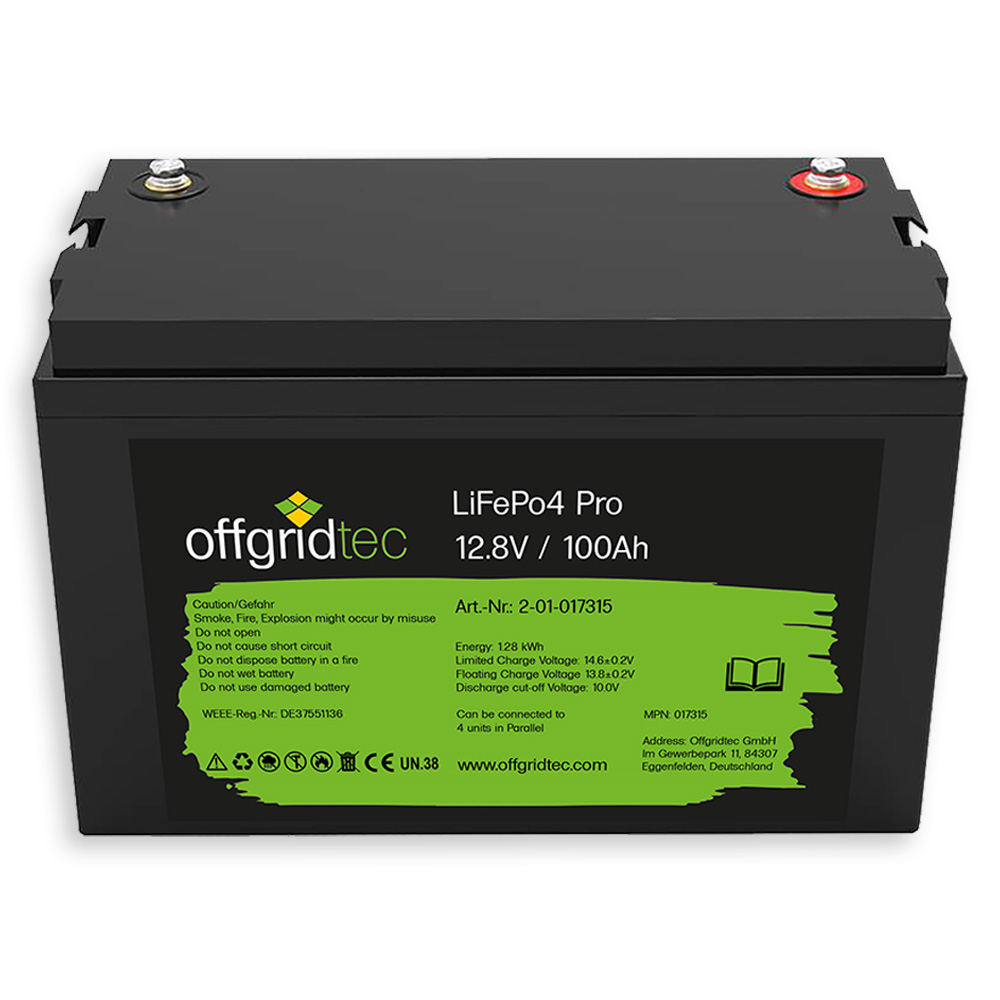
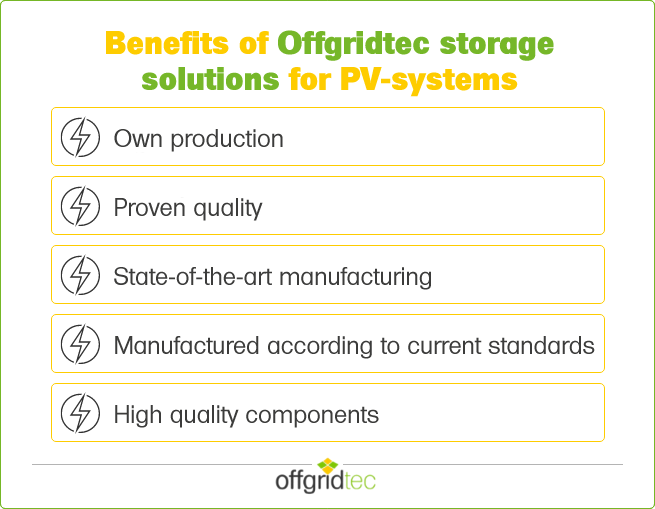
3rd Place: Growatt
Taking the final spot on the podium and securing 3rd place in our ranking is Growatt. Growatt manufactures reliable solar storage systems using state-of-the-art technologies that promise efficient energy generation and optimal performance. The company places great emphasis on extensive quality controls to ensure that its products meet the highest standards.
Growatt's energy storage systems are characterized by a combination of cutting-edge technology and user-friendliness. The installation, operation, and maintenance are extremely intuitive, making the use of the storage systems seamless even for users who are less technically inclined.
This combination of advanced technology and user-friendly design makes Growatt's energy storage systems an attractive option for environmentally conscious consumers seeking an effective and easy-to-use solar solution.
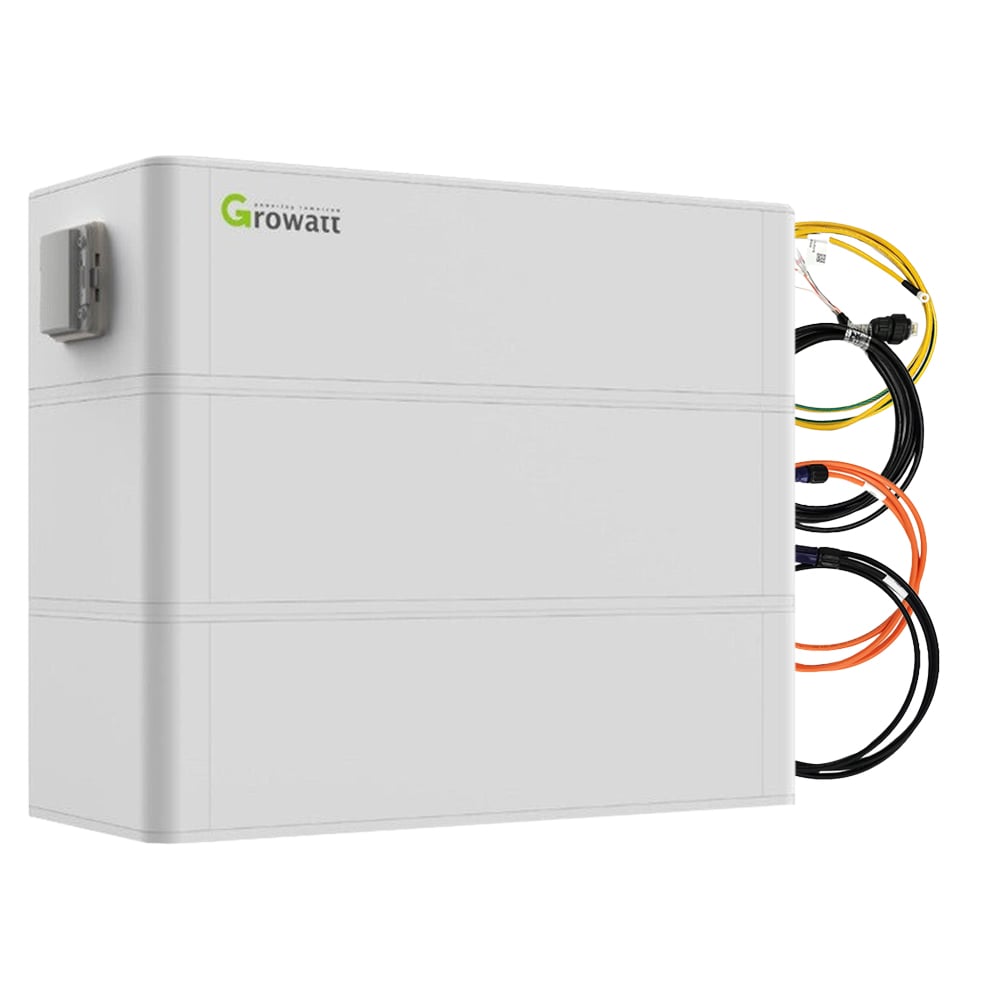
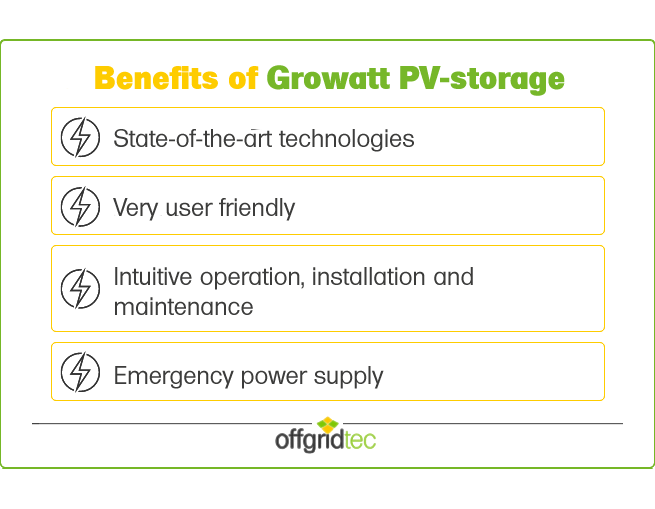
4th Place: BYD
In 4th place, we have the solar storage models from BYD. True to the motto "Build Your Dreams," the Chinese storage manufacturer designs long-term and reliable solutions for your energy storage needs. The Battery-Box Premium series provides an optimal solution for high-voltage requirements that can be customized to meet your individual needs. The advanced energy storage systems in this series offer an unbeatable combination of high performance, flexible adaptability, effortless installation, and straightforward expansion options.
The patented modular plug-and-play system is compatible with many manufacturers and can be scaled up with additional modules or through parallel connections. This gives you the ability to adjust your energy storage solution as needed and increase storage capacity at any time. With their continuous pursuit of excellence, you can be assured that BYD's storage modules always maintain high quality and meet the highest standards.
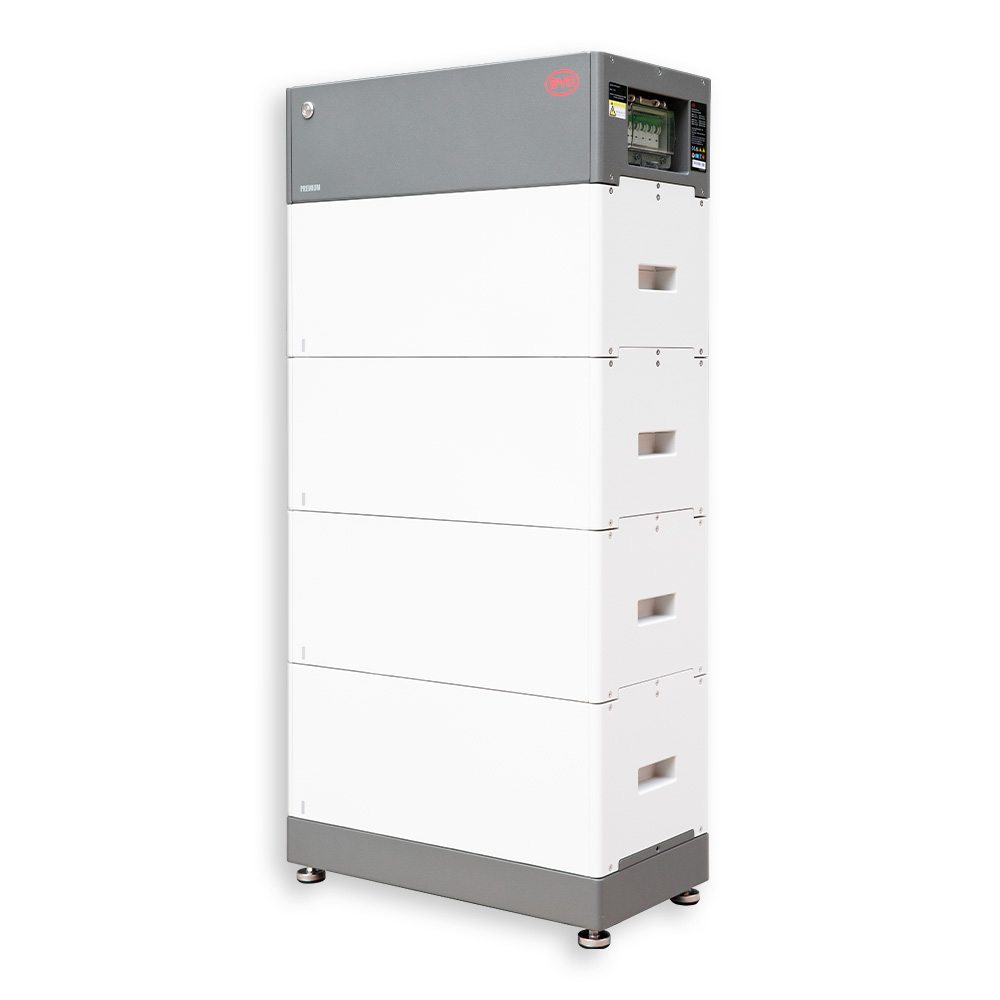
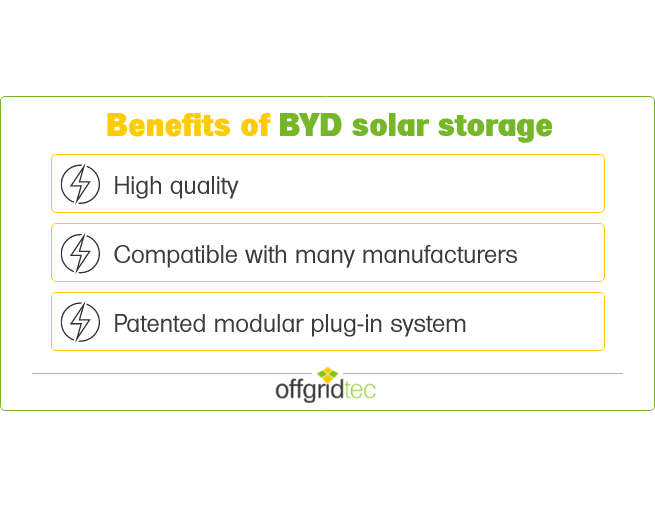
5th Place: EcoFlow
Taking the 5th place is EcoFlow, a China-based company that develops intelligent and environmentally friendly energy solutions for everyone using innovative technologies. Their energy storage solutions, in particular, stand out. EcoFlow's solar storage solutions offer a new form of holistic and reliable solar energy supply. You benefit from perfectly coordinated processes, starting from energy generation, followed by conversion into household electricity, to storage and integration into our domestic power circuits.
EcoFlow's energy storage systems are characterized by intuitive design and straightforward expansion options. Being compatible with numerous other EcoFlow products, you can create your own solar ecosystem at home.
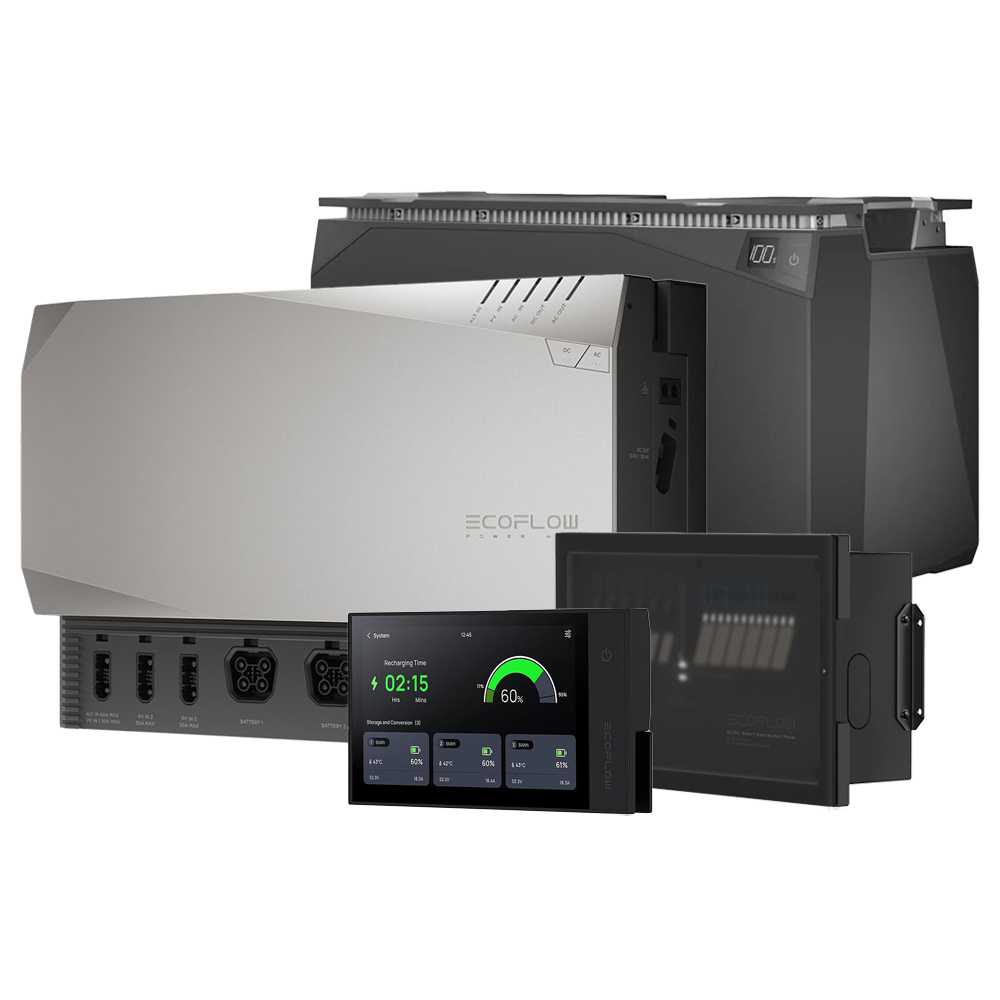
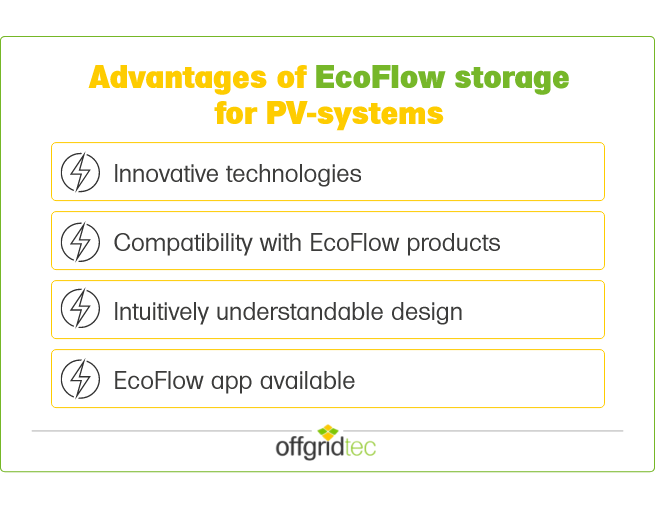
6th Place: Bluetti
Bluetti, with its efficient and reliable energy storage solutions, secures the 6th place in our ranking. Through the use of innovative technologies, Bluetti has made a name for itself in the renewable energy industry.
For some time now, the manufacturer has offered portable power stations, primarily used for camping trips or similar activities. Now, alongside the mobile power solutions, Bluetti also offers suitable home battery storage solutions, allowing you to power your home. A significant advantage is that Bluetti products are compatible with each other. This provides you with various options to expand your energy storage and utilize the generated power as efficiently as possible.
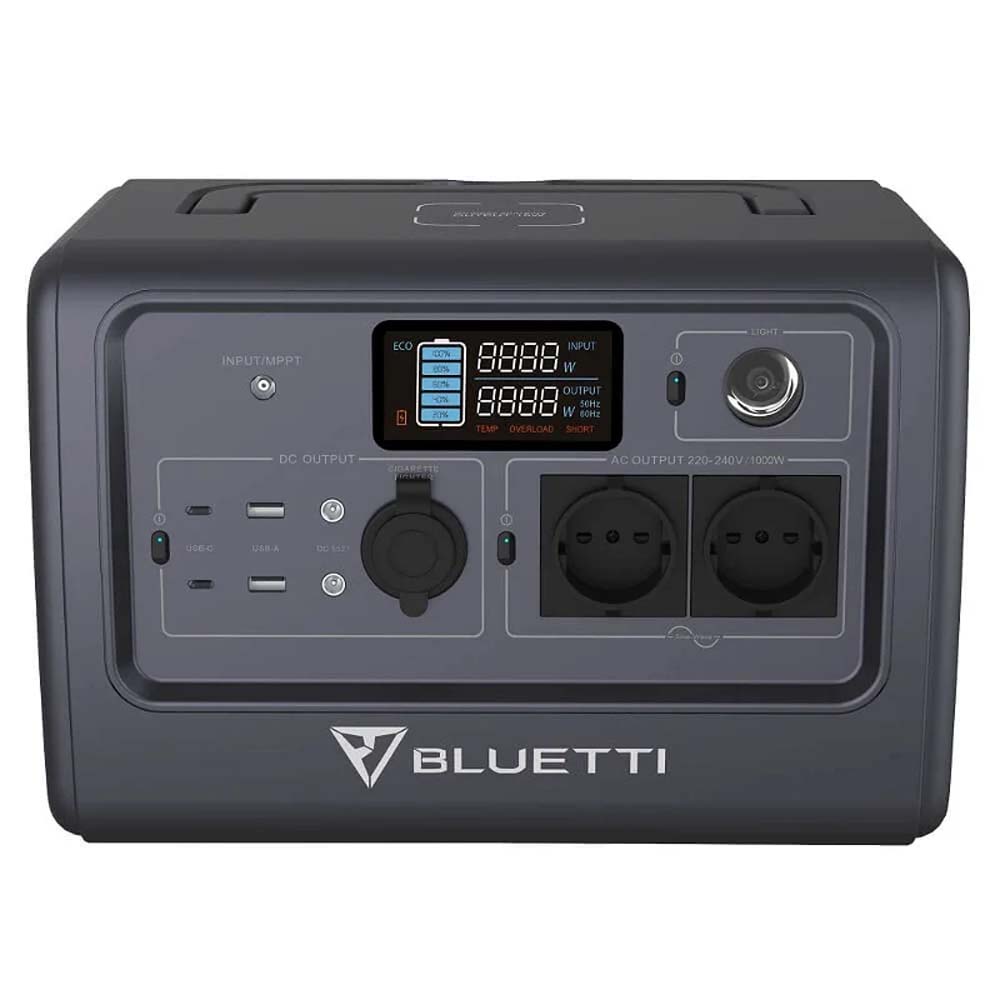
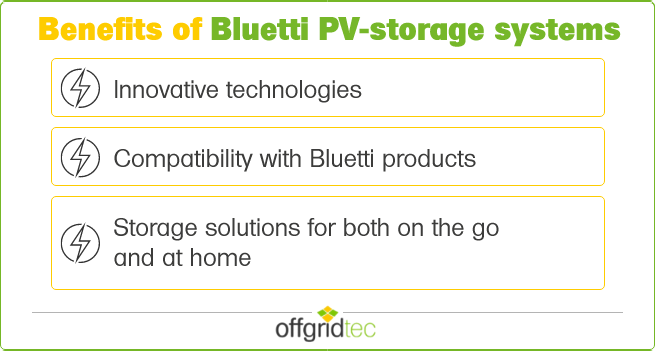
7th Place: Zendure
Founded in 2017, the EnergyTech startup Zendure secures the 7th place with its clean energy storage solutions. The company focuses on high-quality and durable electronic products known for their innovation, quality, and longevity. In the field of energy storage, Zendure is a true pioneer, being one of the first to offer the possibility of connecting a balcony solar system to a storage solution. This allows the generated energy to be used when it is needed.
The SolarFlow energy storage system stands out for its easy installation and compact, stackable design, requiring minimal space for setup. Moreover, it is compatible with numerous balcony solar systems from other manufacturers thanks to its universal MC4 connectors. Zendure also provides an app that allows you to monitor the SolarFlow and make various adjustments, enabling you to configure the solar storage to meet your specific requirements effectively.
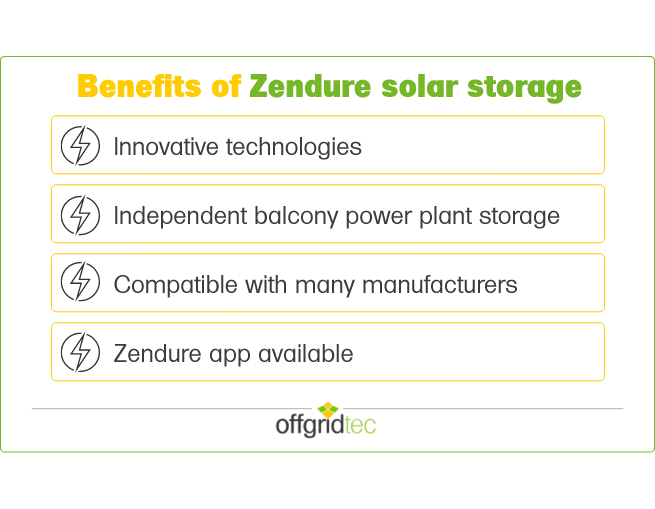
8th Place: Huawei
Huawei has also secured a spot in our ranking. With over 30 years of experience in the field of solar technology, Huawei has developed a solid expertise in the development and manufacturing of efficient and reliable solar modules and energy storage systems. The innovative manufacturing technology allows for the production of high-quality modules with high energy yields.
An outstanding feature is the integration of cloud technologies into Huawei's energy storage systems. By connecting to a cloud platform, the modules can be monitored, controlled, and maintained in real-time. This intelligent networking enables optimized performance of the solar systems and early detection of any issues. Thus, the cloud technologies contribute to increasing the overall efficiency and longevity of the solar systems.
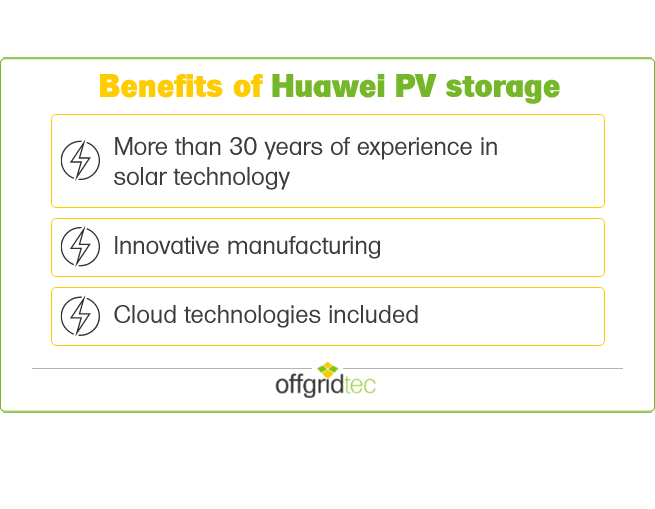
9th Place: Victron Energy
Closing out this ranking is Victron Energy, one of the world's leading manufacturers of energy solutions for off-grid power supply. With Victron Energy's innovative energy solutions, you can be sure to make the right choice.
The storage systems stand out for their top performance and advanced features. Moreover, they are exceptionally easy to expand, allowing them to meet your individual requirements.
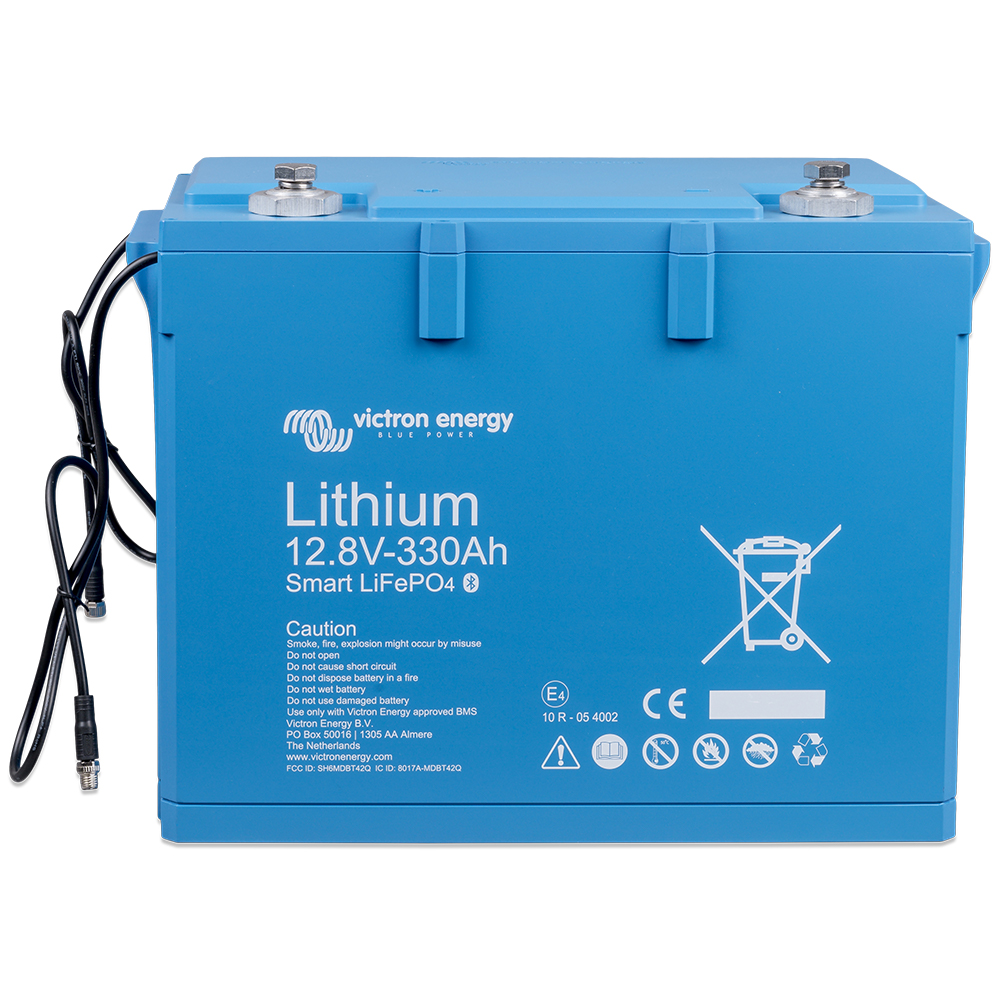
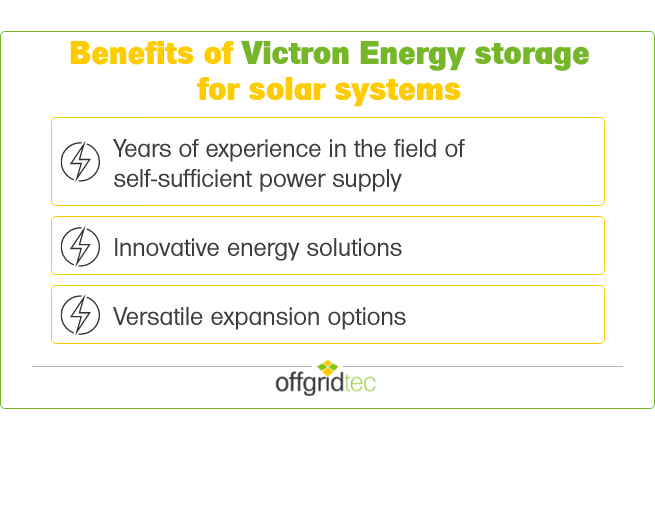
Buy high-quality photovoltaic storage systems online now
Photovoltaic storage systems are an efficient way to optimize the use of self-generated electricity. In our online shop, we offer a wide selection of energy storage solutions from various manufacturers. Don't hesitate to contact us for assistance in selecting the right model. Our team is here to provide expert advice. You can reach us by phone at 08721 91994-00 or via email. Discover the best photovoltaic solar storage solutions today to efficiently utilize your self-generated electricity. Your sustainable energy future starts here!
FAQ
- Which storage system for photovoltaics is the best?
This largely depends on individual needs. Factors such as the size of your house, your electricity consumption, or the size of your solar installation play a role. It's best to seek comprehensive advice to find an energy storage solution that best suits your needs. - How much does a 10 kW storage system cost?
A storage system with a capacity of 10 kilowatt-hours costs approximately 8,000 to 10,000 euros and is ideal for an annual electricity consumption of up to 6,000 kWh. The price per kilowatt-hour becomes cheaper as the storage capacity increases. - How many kWp do you need for a single-family home?
For supplying a typical single-family home, a photovoltaic capacity of about 7 to 14 kilowatt-peak and a storage system with a capacity of about 20 to 40 kilowatt-hours are recommended to effectively cover energy needs. However, this value varies depending on your individual electricity consumption, the sunlight in your region, and the available space for the solar installation. - Can a PV storage system be too large?
Yes, a PV storage system can be too large. This is the case when the storage system has a higher capacity than is actually needed. Sizing should consider the actual energy demand; otherwise, unnecessary costs may be incurred, and the efficiency of the solar system may suffer. Proper sizing is based on consumption, solar yield, and cost-effectiveness.


